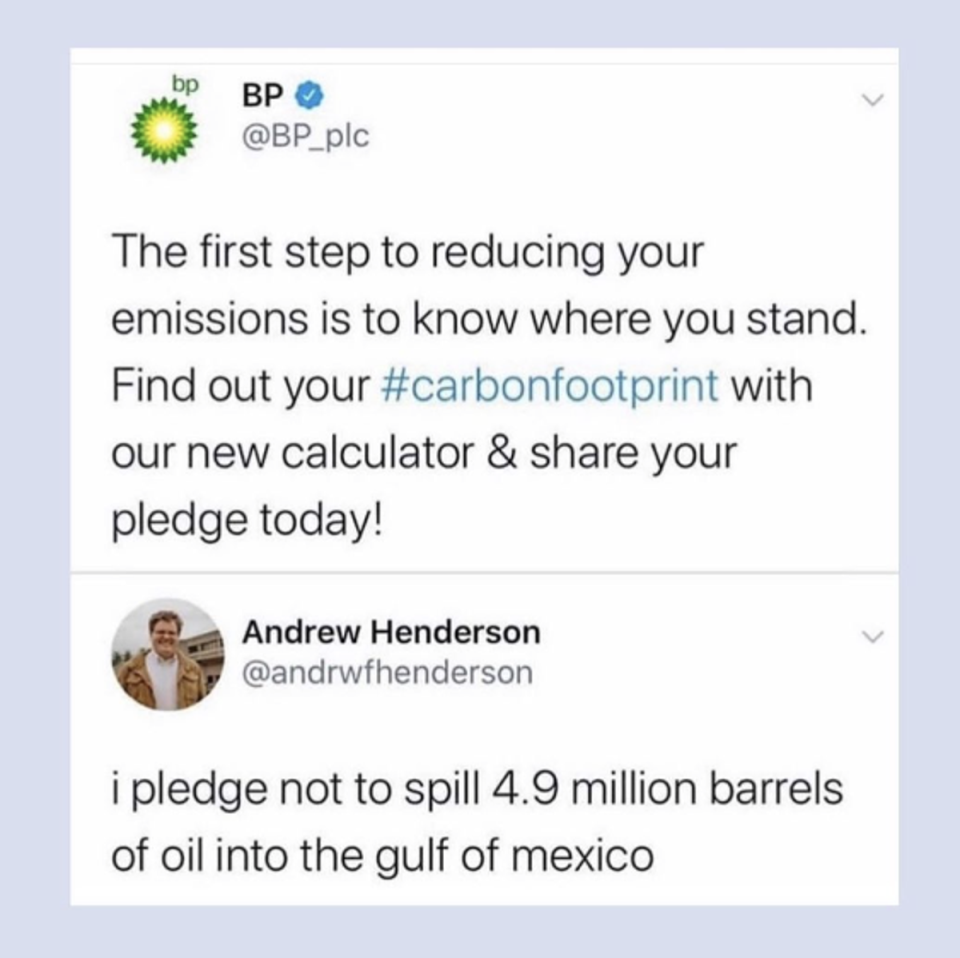‘Don’t Look Up’ director Adam McKay wants to win the climate information war — with memes
- Oops!Something went wrong.Please try again later.
For decades, the fossil-fuel industry controlled public perception of climate change, pouring billions of dollars into lobbying and false advertising, and drowning out the voices of scientists and concerned citizens.
The public relations blitz has ranged from condescending newspaper ads comparing environmentalists to Chicken Little; focusing on what you, the individual, can do to cut your carbon footprint; and more recently, directly sponsoring some climate reporting.
The goal, critics argue, has been to downplay the climate crisis and obscure the fact that fossil fuels are responsible for over 75 per cent of planet-heating greenhouse gas emissions.

Against this backdrop, Hollywood director Adam McKay is embarking on a quest to beat the fossil fuel industry at its own game.
Mr McKay and a group of close collaborators recently launched Yellow Dot Studios to fight back against climate disinformation with satirical articles, videos, memes, and direct action.
“We all to some degree view the world through story and narrative,” he told The Independent via email.
“Modern media and tech now blare the narratives of oil companies and the banks who fund them across the world at a volume and frequency that would have been unimaginable even 30 years ago. We, as part of a global climate network, want to help bring some actual reality to the collective story.”
In 2021, Mr McKay directed the star-studded climate allegory Don’t Look Up, his latest in a long line of hits from over-the-top comedies, Anchorman and Step Brothers, to more serious fare like the Dick Cheney biopic Vice, and Recession-inspired The Big Short.
He’s hoping that humor can act as a Trojan Horse, and inject some much-needed facts into the broader climate discussion in the media.
“Laughter is a truth detector,” he said. “Try to get someone to laugh about how climate activists are wrong and big oil companies are right. They physically can’t do it.”

Since March, Yellow Dot has reached hundreds of thousands of people with Onion-style spoof articles, PSAs from celebrities like Chelsa Handler and sharp-elbowed memes branding figures like BP CEO Bernard Looney a “f***ing sociopath”.
One video unfolds as a satirical TV ad for the concept of money that spirals into a broader climate critique, ending with an endorsement from the devil.
It’s all a far cry from the earnest attitude of nature documentaries or expert commentary but that’s the point, said Staci Roberts-Steele, managing director of Yellow Dot.
“Humor is a pretty easy way to get people in,” she told The Independent. “Humor, especially with satire, allows you to say things you might not be able to say in more dramatic pieces.”
“The other thing is to really just rile up the public,” she added. “If you look at other historical movements. The people have had to stand up and basically pressure the government and industries to act on things. That’s a lot of what we’re doing.”
The scale of the climate crisis, and the speed of online discourse, presents Yellow Dot with both a challenge and a potential advantage, Ms Roberts-Steele said.
“We’re dealing with an audience that’s the entire world,” she said.
The film and TV industry at large seems to be catching on to the urgency. In March, Apple TV+ released Extrapolations, a series of interlinked sci-fi stories exploring what life will be like between the 2030s and 2070s, if the world passes irreversible climate tipping points and a massive seawall surrounds Manhattan.
In April How to Blow Up a Pipeline was released - a movie about a ragtag group of young environmentalists loosely based on a Marxist academic’s book of the same name.

